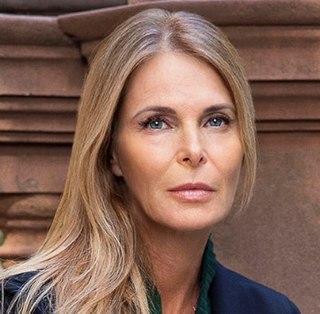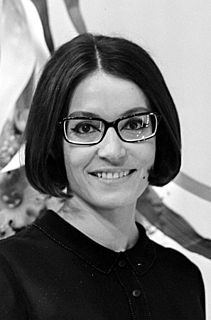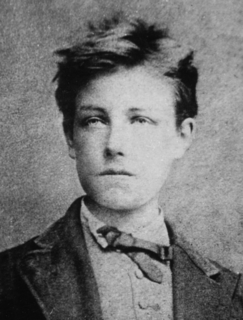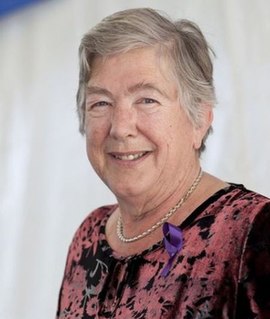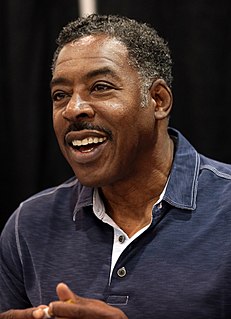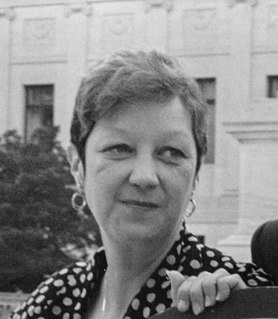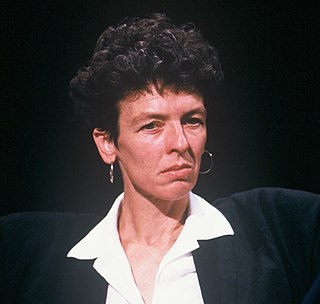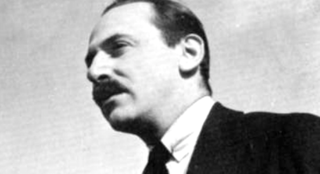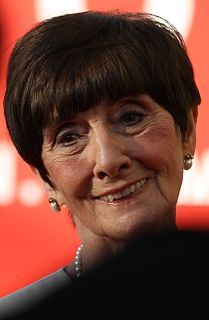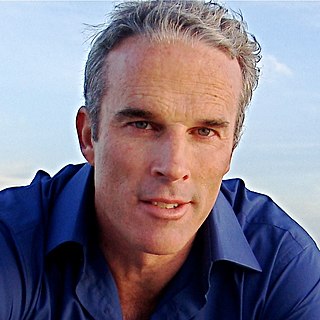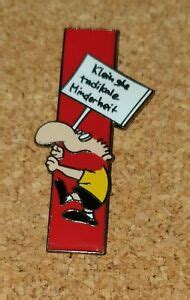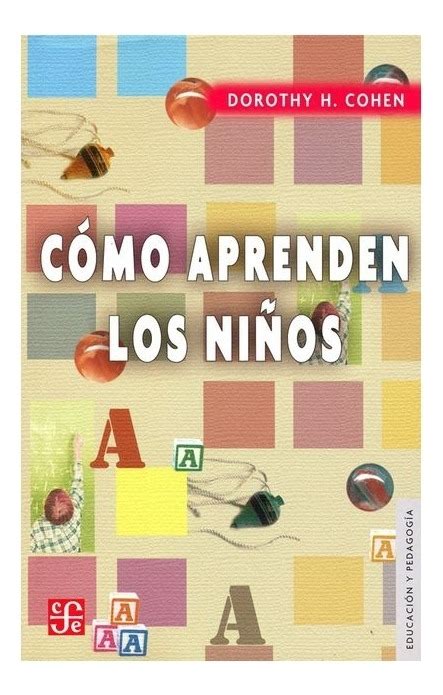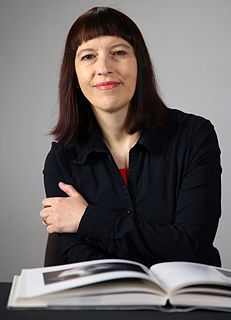Top 1200 Children's Literature Quotes & Sayings - Page 8
Explore popular Children's Literature quotes.
Last updated on November 25, 2024.
You and I have a rendezvous with destiny. We will preserve for our children this, the last best hope of man on earth, or we will sentence them to take the first step into a thousand years of darkness. If we fail, at least let our children and our children’s children say of us we justified our brief moment here. We did all that could be done.
It looks like it’s wasting time, but literature is actually the ultimate time-saver - because it gives us access to a range of emotions and events that it would take you years, decades, millennia to try to experience directly. Literature is the greatest reality simulator - a machine that puts you through infinitely more situations than you can ever directly witness.
For a long time I found the celebrities of modern painting and poetry ridiculous. I loved absurd pictures, fanlights, stage scenery, mountebanks backcloths, inn-signs, cheap colored prints; unfashionable literature, church Latin, pornographic books badly spelt, grandmothers novels, fairy stories, little books for children, old operas, empty refrains, simple rhythms.
I'd studied English literature and American history, but the English literature, which I thought was going to be helpful to me in an immediate way, was the opposite. So I had to un-think a lot of things and move out of my own head, and I learned a lot. It was like graduate school, but an un-graduate school or an un-school.
Thou shalt not commit adultry is a command which makes no distinction between the following persons. They are all required to obey it: children at birth. Children in the cradle. School children. Youths and maidens. Fresh adults. Older ones. Men and women of 40. Of 50. Of 60. Of 70. Of 80. Of 100. The command does not distribute its burden equally, and cannot. It is not hard upon the three sets of children.
The new concept of the child as equal and the new integration of children into adult life has helped bring about a gradual but certain erosion of these boundaries that once separated the world of children from the word of adults, boundaries that allowed adults to treat children differently than they treated other adults because they understood that children are different.
If technology and medicine are used by women to have children or not to have children or to have healthier children - that's one thing. But if it's used to say, 'You're not a real woman unless you have a child; therefore, take all these dangerous hormones and have one at 54,' then it's another story.
Freedom is always just one generation away from extinction. We don't pass it to our children in the bloodstream. We have to fight for it and protect it and then hand it to them, so that they shall do the same, or we're going to find ourselves spending our sunset years telling our children and our children's children, about a time in America, back in the day, when men and women were free.
Each of us must come to care about everyone else's children. We must recognize that the welfare of our children and grandchildren is intimately linked to the welfare of all other people's children. After all, when one of our children needs lifesaving surgery, someone else's child will perform it. If one of our children is threatened or harmed by violence, someone else's child will be responsible for the violent act. The good life for our own children can be secured only if a good life is also secured for all other people's children.
Perhaps the chief cause which has retarded the progress of poetry in America, is the want of that exclusive cultivation, which so noble a branch of literature would seem to require. Few here think of relying upon the exertion of poetic talent for a livelihood, and of making literature the profession of life. The bar or the pulpit claims the greater part of the scholar's existence, and poetry is made its pastime.
The point about sales is relevant because it suggests there are cultures out there that are supporting and consuming, on a vast scale, challenging works of literature. Works of literature that in the United States would sell only a few thousand copies, if they managed to find a publisher at all. The success of these texts in Spain or Italy or wherever contributes to a kind of national conversation that we're perhaps not having here in the U.S.
I don't fear death. I'm not obsessed with it the way everybody else seems to be. It's wrong to say "everybody," but in literature I see it all the time - preoccupation with it, philosophical preoccupation, in fact. That's a principle element of literature and philosophy, often cited as the main element, the only real element. I say give it up.
Literature, real literature, must not be gulped down like some potion which may be good for the heart or good for the brain—the brain, that stomach of the soul. Literature must be taken and broken to bits, pulled apart, squashed—then its lovely reek will be smelt in the hollow of the palm, it will be munched and rolled upon the tongue with relish; then, and only then, its rare flavor will be appreciated at its true worth and the broken and crushed parts will again come together in your mind and disclose the beauty of a unity to which you have contributed something of your own blood.
You once said to me that I talk like a man in a book. I not only talk, but think and feel like one. I have spent my life in books; literature has deeply dyed my brain its own colour. This literary colouring is a protective one--like the brown of the rabbit or the checks of the quail--making it impossible for me to tell where literature ends and I begin.
Although adults have a role to play in teaching social skills to children, it is often best that they play it unobtrusively. In particular, adults must guard against embarrassing unskilled children by correcting them too publicly and against labeling children as shy in ways that may lead the children to see themselves in just that way.
More than a billion women around the world want to emulate western women's lifestyles and are rapidly acquiring the material ability to do so. It is therefore vital that in our leadership we display some reserve and responsibility in our spending so that the world's finite resources will be available for our children, their children and their children's children
My job is unbearable to me because it conflicts with my only desire and my only calling, which is literature. Since I am nothing but literature and can and want to be nothing else, my job will never take possession of me, it may, however, shatter me completely, and this is by no means a remote possibility.
If technology and medicine are used by women to have children or not to have children or to have healthier children - that's one thing. But if it's used to say, 'You're not a real woman unless you have a child, therefore take all these dangerous hormones and have one at 54," then it's another story.
In fact I don't think of literature, or music, or any art form as having a nationality. Where you're born is simply an accident of fate. I don't see why I shouldn't be more interested in say, Dickens, than in an author from Barcelona simply because I wasn't born in the UK. I do not have an ethno-centric view of things, much less of literature. Books hold no passports. There's only one true literary tradition: the human.
Life's so ordinary that literature has to deal with the exceptional. Exceptional talent, power, social position, wealth.... Dramabegins where there's freedom of choice. And freedom of choice begins when social or psychological conditions are exceptional. That's why the inhabitants of imaginative literature have always been recruited from the pages of Who's Who.
In my profession it isn’t a question of telling good literature from bad. Really good literature is seldom appreciated in its own day. The best authors die poor, the bad ones make money — it’s always been like that. What do I, an agent, get out of a literary genius who won’t be discovered for another hundred years? I’ll be dead myself then. Successful incompetents are what I need.
I know, you've been here a year, you think these people are normal. Well, they're not. WE'RE not. I look in the library, I call up books on my desk. Old ones, because they won't let us have anything new, but I've got a pretty good idea what children are, and we're not children. Children can lose sometimes, and nobody cares. Children aren't in armies, they aren't COMMANDERS, they don't rule over forty other kids, it's more than anybody can take and not get crazy.
[Bob Dylan] is principally a recording artist, and if he weren't, it is unthinkable he would have had such an impact. He is to be heard first and read second. Well, what about plays, you could reasonably ask. Is [William] Shakespeare not great literature? Yes, obviously: but his work is great literature even to those who have never known it performed. The same is evidently not true of Dylan.
I really, really love children and I think probably among children is when I feel mostly berated. It's not like I feel like oh, there's some children here. I have to tone it down. I go nuts with children especially when I ain't got none. So when I'm round my mates' children, I jest them kids up first. I swear at them, I get more worked up, I say crazy stuff to them, fill their heads with nonsense and then I leave them.
Our most fundamental social need, it turns out, to my amazement, is love. Now, I'm not a hippie-dippie whatever. If you look at the literature, our most fundamental need for children is an environment of maximum love, and that they can be hugged, kissed, and loved. That's what humanises us and allows us to realise our whole dimension.
We are children, perhaps, at the very moment when we know that it is as children that God loves us - not because we have deserved his love and not in spite of our undeserving; not because we try and not because we recognize the futility of our trying; but simply because he has chosen to love us. We are children because he is our father; and all of our efforts, fruitful and fruitless, to do good, to speak truth, to understand, are the efforts of children who, for all their precocity, are children still in that before we loved him, he loved us, as children, through Jesus Christ our lord.
Much of the pressure contemporary parents feel with respect to dressing children in designer clothes, teaching young children academics, and giving them instruction in sports derives directly from our need to use our children to impress others with our economic surplus. We find "good" rather than real reasons for letting our children go along with the crowd.
The middle years are ones in which children increasingly face conflicts on their own,... One of the truths to be faced by parentsduring this period is that they cannot do the work of living and relating for their children. They can be sounding boards and they can probe with the children the consequences of alternative actions.
